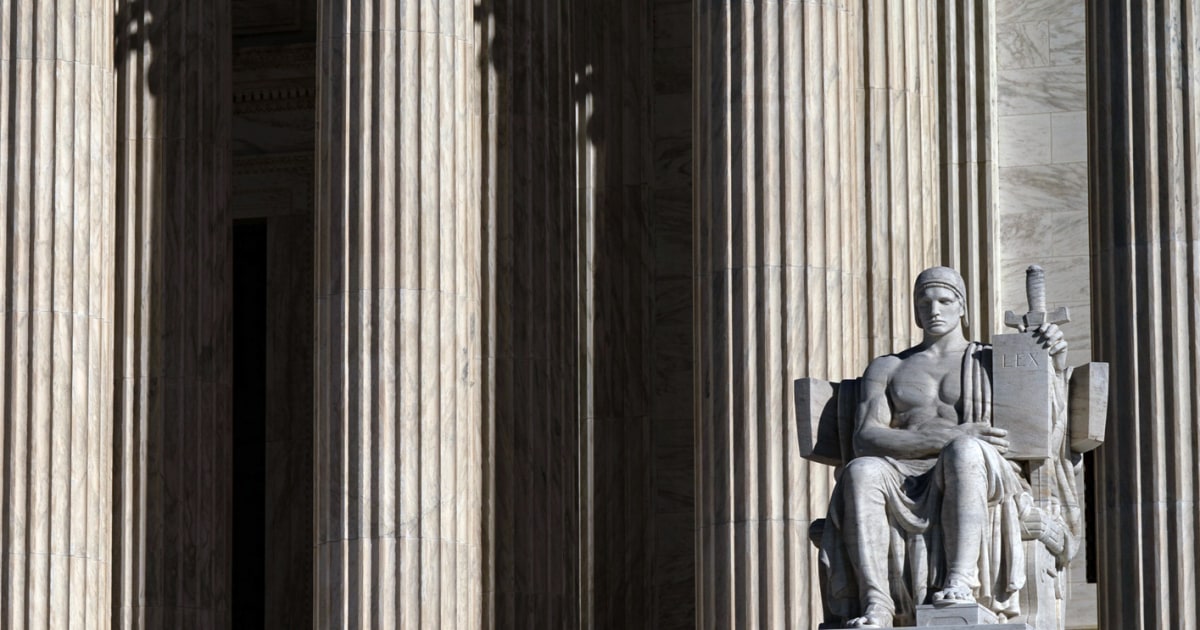WASHINGTON — The Supreme Court on Friday took up a series of new cases ahead of its new term, including a bid by gun companies to evade a lawsuit filed by the Mexican government and a workplace sex discrimination dispute over claims a woman was discriminated against because she is straight.
The court’s nine-month new term officially starts on Monday.
In the gun case, Mexico officials say gun companies should be held accountable for violent crime across the border involving their products.
The case currently involves two companies — Smith & Wesson and Interstate Arms — with other manufacturers, including Glock and Colt, already successfully having claims against them tossed out.
The companies argue that a law called the Protection of Lawful Commerce in Arms Act that restricts lawsuits against arms manufacturers means that the entire lawsuit should be dismissed.
A federal judge had ruled for the manufacturers, but the Boston-based 1st U.S. Circuit Court of Appeals revived the case, saying that the liability shield did not extend to Mexico’s specific claims.
In the sex discrimination case, Marlean Ames sued the Ohio Department of Youth Services under Title VII of the Civil Rights Act, which bars sex discrimination in the workplace, when a promotion she applied for was given to a lesbian woman. She was then demoted and her old position was taken by a gay man.
Ames has worked at the department since 2004. Starting in 2017, she began reporting to a lesbian woman. She was denied the promotion she sought two years later and demoted soon after that.
Lower courts, including the Cincinnati-based 6th U.S. Circuit Court of Appeals, ruled for the state agency, but Ames then turned to the Supreme Court. In particular, her lawyers take aim at precedent in some lower courts that says people from a “majority group” have to meet a higher bar in order for their case to move forward than someone from a minority group.
Those courts, including the 6th Circuit, say that such plaintiffs have to present “background circumstances” to show that the defendant is “that unusual employer who discriminates against the majority,” Ames’ lawyers said in court papers.
The state responded in its own court filing that Ames had failed to show that she had been discriminated against. Among other things, Ames was demoted because new leadership in the agency wanted to restructure its operations to prioritize sexual violence in the juvenile corrections system. Ames had been in charge of a program aimed at combating rape in prison but was seen as difficult to work with.
Officials involved in making those decisions are straight, the state’s lawyers pointed out.
Also among the 13 cases the court took up is one concerning the decades-long debate of where to store nuclear waste in a dispute over a proposal for a facility in Texas that was approved by the federal government.
The court will review a ruling by the New Orleans-based 5th U.S. Circuit Court of Appeals that faulted the Nuclear Regulatory Commission for its 2021 decision to allow a company called Interim Storage Partners to store waste in Andrews County, Texas, for up to 40 years.
State officials including Gov. Gregg Abbott, are among those who have objected to the approval.
They challenged the NRC’s decision in court, with an appeals court ruling both that they had a right to file suit and that the agency did not have the authority to issue the license.
In court papers, Texas officials say that the NRC would allow up to 40,000 metric tons of waste to be stored above ground in the Permian Basin, which in addition to being a prominent oil field is also a source of water for surrounding communities.
The NRC maintains that under the Atomic Energy Act, it can order spent nuclear fuel to be transported across the country and held temporarily at a different site than where the fuel was used.
The Texas litigation is the latest salvo in a long-running series of fights over where to store nuclear waste. For decades, a similar battle was waged over plans to build a storage facility at Yucca Mountain, Nevada. The project was effectively killed under the Obama administration after decades of work was carried out.
The court also added a new death penalty case to the docket involving a Texas inmate, Ruben Gutierrez. The justices blocked his execution in July, signaling interest in his claim.
Gutierrez is fighting to access DNA testing that he says could upend his conviction.
In another case, the court will revisit the circumstances under which a police officer can be found to have used excessive force under the Constitution’s 4th Amendment. It concerns a fatal shooting during a traffic stop in Texas.
All the cases will be argued and decided in the new court term, which concludes at the end of June next year.


